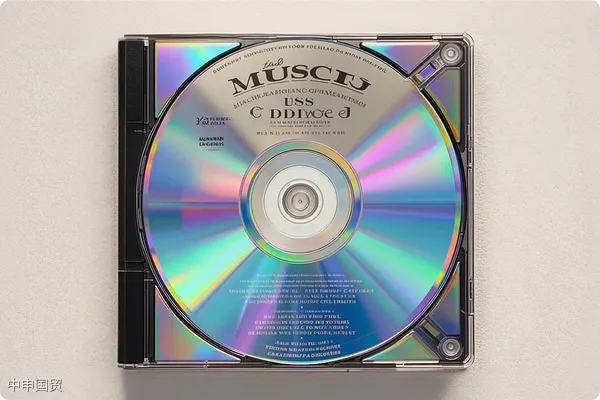- Shanghai Zhongshen International Trade Co., Ltd. - Two decades of trade agency expertise.
- Service Hotline: 139 1787 2118
Importing music CDs can enrich the domestic cultural market and meet the diverse needs of music enthusiasts. However, importing music CDs involves complex legal regulations, including copyright, content review, tax policies, and more. Therefore, understanding and complying with relevant regulations to ensure a smooth and legal import process is essential.

Understand Import Policies
1.1 Compliance with National Policies and Regulations on Audio-Visual Products
First, imported music CDs must comply with national policies and regulations. According to Chinas Regulations on the Administration of Audio-Visual Products and the Copyright Law, imported audio-visual products must undergo strict review to ensure they do not violate copyright regulations or content review standards.
1.2 Copyright Issues
Legal ownership or licensing rights must be obtained. This is the primary prerequisite for importing music CDs. Importers must sign copyright contracts with copyright owners or authorized parties to ensure there are no disputes or infringement risks regarding the copyright of the imported music CDs.
1.3 Content Review
Imported music CDs must pass content review to ensure they do not contain any prohibited content, such as opposition to constitutional principles, threats to national security, or disruption of social stability. Content review is typically conducted by the National Radio and Television Administration or other relevant departments.
Quantity Restrictions and Document Preparation
2.1 Quantity Restrictions
According to China Customs regulations, there are quantity restrictions on audio-visual products carried or mailed by individuals:
(1) No more than 20 discs for single-disc audio-visual products.
(2) No more than 3 sets for box-set audio-visual products.
Exceeding these limits may require tariff payments and be processed as commercial imports. For commercial imports or large quantities, formal import procedures involving more customs declaration and tax formalities must be followed.
2.2 Document Preparation
Importing music CDs requires complete import documents, including but not limited to:
(1) Import Contract
(2) Invoice
(3) Packing List
(4) Bill of Lading
(5) Copyright Certificate
(6) Content Review Certificate
Ensuring all documents are complete and compliant can expedite customs clearance and reduce unnecessary delays and complications.
Customs Declaration, Inspection, and Customs Valuation & Taxation
3.1 Customs Declaration and Inspection
Declare to customs through qualified customs brokers and undergo necessary inspection and quarantine procedures. The customs declaration process requires submission of the aforementioned prepared documents while ensuring their authenticity and legality.
3.2 Customs Valuation and Taxation
Based on the declared value of music CDs, customs will levy tariffs and import taxes. Importers should understand current tax policies and plan accordingly to minimize costs.
3.3 Tax Policies
Familiarizing with and utilizing potential preferential tax policies, such as those offered by Free Trade Agreements (FTAs), can significantly reduce import costs.
Selecting the Right Importer and Legal Channels
4.1 Selecting Suitable Importers
When importing through commercial channels, choosing experienced and compliant importers is crucial. Compliant importers can provide professional guidance and services to ensure smooth import processes.
4.2 Legal Channels
Ensure imports are conducted through official channels to avoid legal risks associated with illegal methods. Illegal imports not only carry legal consequences but may also lead to cargo detention or destruction, causing financial losses.
Logistics Tracking and Market Adaptability
5.1 Logistics Tracking
Maintain temperature control and packaging safety during logistics to prevent damage to music CDs during transit. This is particularly important for rare or limited-edition music CDs where proper logistics management is essential.
5.2 Market Adaptability
Consider the cultural acceptance and consumer preferences of target markets to ensure imported music CDs meet market demand. This includes localization of music style, content, language, and packaging design.
Following these considerations—understanding import policies, ensuring copyright compliance, conducting content reviews, preparing necessary documents, importing through legal channels, proper tax planning, and selecting appropriate logistics—can effectively mitigate legal risks, ensure smooth imports, and successfully introduce overseas music works to domestic markets. This not only enriches domestic music diversity but also meets enthusiasts needs while promoting cultural exchange.
Related Recommendations
? 2025. All Rights Reserved. Shanghai ICP No. 2023007705-2  PSB Record: Shanghai No.31011502009912
PSB Record: Shanghai No.31011502009912










